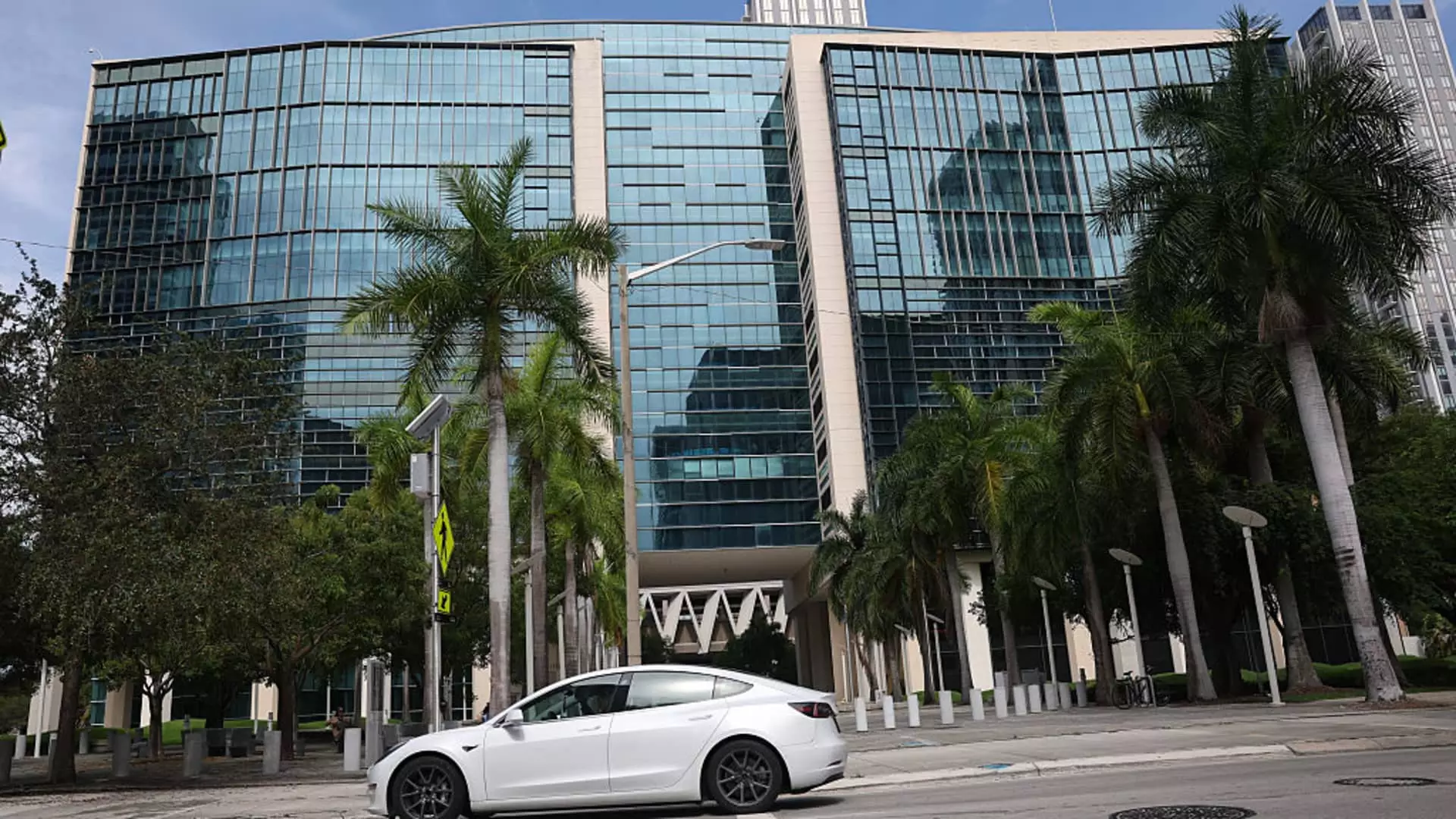As the automotive industry accelerates toward fully autonomous vehicles, Tesla’s Autopilot system stands at the intersection of technological innovation and moral responsibility. The recent personal injury lawsuit stemming from a tragic 2019 crash exposes critical vulnerabilities in Tesla’s approach to marketing and technological stewardship. This case isn’t merely about one fatal accident; it epitomizes the broader struggle to balance ambitious automation with the imperative of public safety. Tesla’s aggressive push to position Autopilot as a near-autonomous system may be foundational to its business model, but it also raises alarm bells about how much consumers truly understand about the technology they rely upon.
Tesla’s ambitious narrative has often spun a story of revolutionary progress—one where driver assistance can seamlessly safeguard lives. However, the reality exposed in this trial suggests a stark disconnect. The company’s claims about Autopilot’s capabilities seem to have inadvertently fostered overconfidence among users, leading them to entrust the system with moments that demand full human attention. This raises questions about corporate responsibility, transparency, and whether Tesla has prioritized rapid deployment and market dominance over rigorous safety validation.
Misleading Promises or Mere Oversight? The Ethical Dilemma
The crux of the lawsuit hinges on Tesla’s alleged misrepresentation of Autopilot’s capabilities. Plaintiffs claim that Elon Musk and Tesla overstated safety features, instilling a false sense of security in users who, like George McGee, relied heavily on the system. The court proceedings highlight how misleading marketing, whether intentional or not, can have dire consequences. If Tesla marketed Autopilot as a safety shield, but in practice, it proved inadequate to prevent accidents under certain circumstances, then responsibility shifts significantly onto the automaker.
From the evidence presented, Tesla’s communication appears to be a double-edged sword. On the one hand, the company outwardly champions technological progress; on the other, critics argue that internal data and testing results suggest awareness of some vulnerabilities, which were then obscured from consumers. The question becomes: did Tesla’s leadership fully grasp the risks, or was the pursuit of profitability and technological prominence driving decisions that compromised safety?
This dilemma touches on a deeper ethical issue prevalent in high-tech industries—should innovation be constrained by more rigorous testing and transparent communication, or does corporate ambition justify pushing boundaries at potential costs?
The Power Struggle: Public Trust Versus Corporate Drive
Tesla’s bold claims and Musk’s charismatic leadership have cultivated a fiercely loyal customer base and a reputation as an innovator. But this case threatens to unravel that trust, exposing the dangers of overpromising and underdelivering on safety. The narrative that Tesla’s Autopilot can prevent collisions has, whether intentionally or inadvertently, fostered complacency among drivers. The tragic death of Naibel Benavides, and the injuries sustained by her boyfriend, serve as painful reminders that current autonomous driving systems are far from infallible.
The legal process reveals a larger tension between corporations eager to showcase technological breakthroughs and regulatory bodies responsible for safeguarding public welfare. If, as the court suggests, Tesla operated with a reckless disregard for human life in its rush to develop and promote Autopilot, then the company must reckon with hard questions about its ethical boundaries.
Public confidence in autonomous vehicles hinges on transparency, proven safety, and clear limits on what these systems can achieve. Tesla’s case illustrates how mystique and marketing hype can quickly devolve into mistrust when tragedies expose the underlying flaws.
The Future of Autonomy: Lessons from a Legal Firestorm
This lawsuit marks a pivotal moment in the debate over autonomous vehicle safety and corporate accountability. While Tesla attempts to frame itself as a pioneer working toward a future where road accidents are minimized, the proceedings reveal that technological progress cannot come at the expense of rigorous testing and honest communication. If anything, this case compels Tesla—and other companies pushing autonomous tech—to revisit their ethical frameworks and prioritize safety over speed.
More broadly, the courtroom drama underscores a fundamental truth: societal acceptance of autonomous vehicles depends on trust. Incidents like this threaten to erode that trust if companies continue to overlook the importance of transparent, realistic limitations. Tesla’s reputation hangs in the balance, and the court’s verdict could set a precedent for how autonomous driving systems are developed, marketed, and regulated in the future.
This moment beckons a paradigm shift—from viewing AI-driven vehicles as infallible marvels to understanding them as complex tools that require respect, caution, and rigorous oversight. Tesla’s fight is emblematic of a larger debate about the ethics of technological advancement and the responsibility of corporations to prioritize human lives over profits and prestige.

